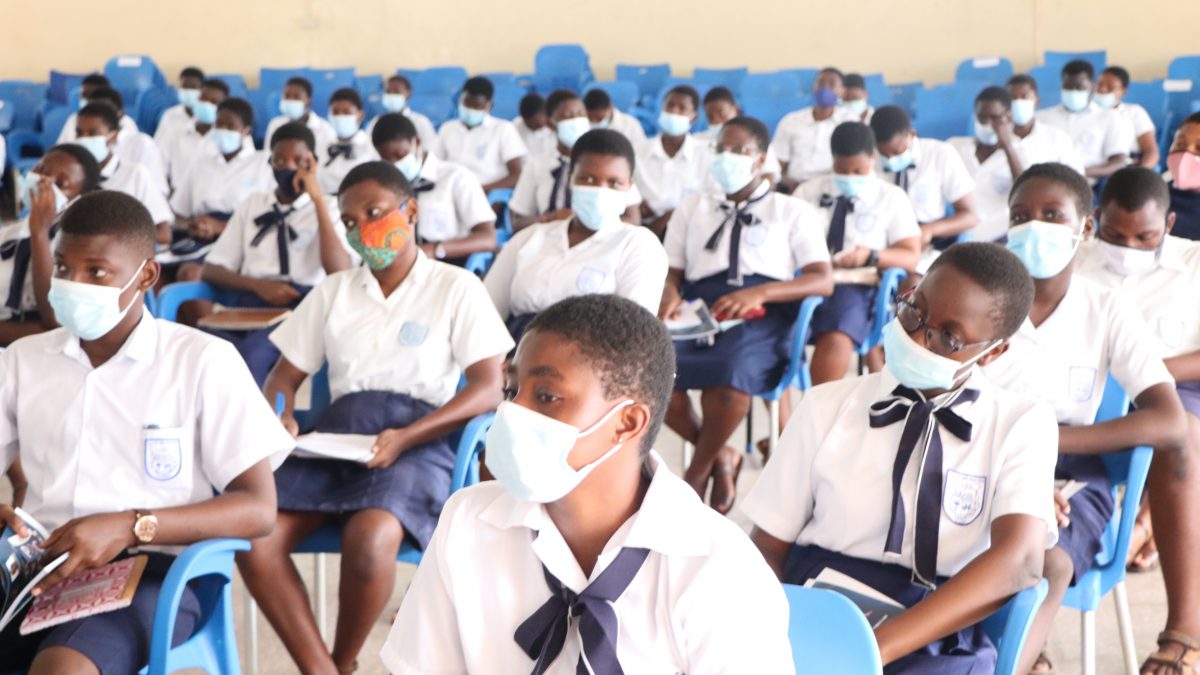- Login to ASPnet | Ghana Commission for UNESCO | Government Agency Responsible for the coordination of Ghana's contributions to and presence at UNESCO
BULLYING MUST STOP IN SCHOOLS

Just a few days into the reopening of schools, videos of seniors bullying and molesting their juniors are already circulating on social media. Bullying is one thing that elucidates fear among juniors in school. Generally, it occurs when one or more persons repeatedly say or do hurtful things to another who has problems defending himself or herself. It usually involves hitting, kicking or making offensive and sneering comments or threats.
Repeatedly teasing someone who clearly shows signs of distress is also recognized as bullying. The impact of bullying extends well beyond the bully and the victim to the peer group, school and community. Those who are not directly involved but who regularly witness bullying at school suffer from a less secure learning environment, the fear that the bullies may target them next and the knowledge that teachers and other adults are either unable or unwilling to control bullies’ behavior. A recent UNESCO report reveals that more than 3C per cent of the world’s students have been victims of bullying, one way or another, with consequences such as declining academic achievement, school dropout and physical and mental health problems.
Plan International also suggests that 246 million children and adolescents Experience violence in and around school every year, with girls being the most affected. It is in recognition of the negative impact of bullying on students that the first Thursday in November every year has been declared by UNESCO member states as International Day against Violence and Bullying at School, including cyber-bullying. The declaration is in recognition of the fact that school-related violence in all its forms is an infringement on children and adolescents’ rights to education, health and well-being. Surely, school bullying deprives millions of children and young people of their fundamental right to education and there is the need to strengthen partnerships and initiatives that accelerate progress to prevent and eliminate violence and bullying in schools, including cyber-bullying. We are happy to note that the UN and particularly the partnership among the Ghana National Commission for UNESCO, the Ghana Education Service and the Ministry of Communications are showing commitment to end this practice which has, over the years, left horrific and terrifying experiences with some students. Bullying has, undoubtedly, left a number of students with low self-esteem and disinterest in schooling, which must stop now. The point needs to be made because it has the potential of eroding the gains so far made by the country towards achieving quality and inclusive education for all. The Daily Graphic acknowledges that some students, especially seniors, feel that they went through similar ordeal and must visit same on their victims. There are yet many seniors who take delight in bullying their juniors and making their lives miserable.
In addressing bullying, it is important that school authorities play a key role by instituting measures to serve as a deterrent to bullies. The authorities must proactively adopt measures that will discourage the festering of this despicable act in their schools.
First of all, schools must make it known to both staff and the students the disciplinary actions that may be taken against bullies. These actions must be commensurate with the nature and gravity of the offences committed. Such actions may include written reprimands, community service, suspension, exclusion or expulsion, as the case may be.
We also suggest that schools must establish clear procedures and strategies for reporting acts of bullying or retaliation. They must provide an avenue for victims or students to anonymously report acts of bullying or retaliation, while responding promptly to and investigating reports of bullying or retaliation.
Bullying must not be tolerated in any society that cares about the welfare of its members.
